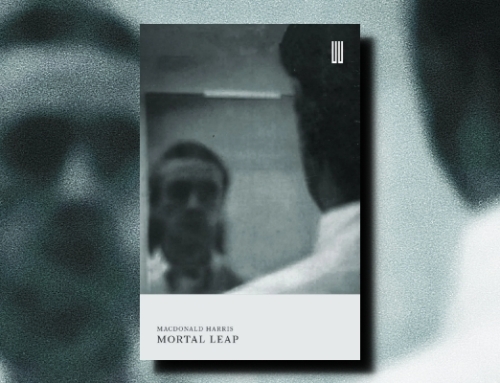The Literary Conference
by César Aira (El congreso de literatura, 2006)
translated from the Spanish by Katherine Silver (2010)
New Directions (2010)
96 pp
 When I first read Aira, I became an immediate fan. I have loved the three books New Directions has offered us: Ghosts, which was quietly disturbing and atmospheric; An Episode in the Life of a Landscape Painter, which was full of nature and adventure and how to capture that in art; and How I Became a Nun, which is a bizarre — bizarre — take on childhood memories (ohh! that strawberry ice cream!). I recommend any of them. I couldn’t wait to read the most recent offering, but, due to some postal service mishaps over the past months, it took me a lot longer to get to The Literary Conference. It was well worth the wait! Not at all what I expected (I should know better than to try to predict anything about an Aira book), and showing just how versatile Aira is, this is the funniest book I’ve read all year. No offense meant to Bertie and Jeeves.
When I first read Aira, I became an immediate fan. I have loved the three books New Directions has offered us: Ghosts, which was quietly disturbing and atmospheric; An Episode in the Life of a Landscape Painter, which was full of nature and adventure and how to capture that in art; and How I Became a Nun, which is a bizarre — bizarre — take on childhood memories (ohh! that strawberry ice cream!). I recommend any of them. I couldn’t wait to read the most recent offering, but, due to some postal service mishaps over the past months, it took me a lot longer to get to The Literary Conference. It was well worth the wait! Not at all what I expected (I should know better than to try to predict anything about an Aira book), and showing just how versatile Aira is, this is the funniest book I’ve read all year. No offense meant to Bertie and Jeeves.
The Literary Conference borders on . . . no, devles into the ridiculous — in the best way possible. A superlative stylist (and being translated by the superlative Katherine Silver), Aira’s matter-of-fact tone somehow manages to stay in tact in a book that begins as a puzzle-adventure in Venezuela, turns into a mad-scientist take-over-the-world science-fiction, and ends as a B-movie — and still manages to be about the creation of art.
Allow me to elaborate:
In the first section, “The Macuto Line,” a relatively well known translator and author (named César) is making his way to a literary conference but has made a stop in Venezuela. Near his hotel is the famous Macuto Line, a rope that wraps around a rock and plunges into the ocean. This line, it is said, is a centuries old puzzle that, if solved, leads the way to buried treasure. The line was obviously made by a genius; it is itself a piece of art. No one, in all the years (and, thankfully, the line is still in tact despite the ocean and wind), has solved this great mystery.
On stormy nights the wind made it sing, and those who heard it during a hurricane became obsessed for the rest of their lives with its cosmic howls. Sea breezes of all kinds had strummed this lyre with a single cord: memory’s handmaiden.
César arrives, takes a look at it, and solves it. He admits, “My own intelligence is quite minimal, a fact I have ascertained at great cost to myself. It has been just barely adequate to keep me afloat in the tempestuous waters of life.” Nevertheless, his individual experiences, the events and moods that build up him as an individual, suited him for this task. It’s an excellent, slightly insane, discourse on the complexity of the individual.
Immediately wealthy, he could now skip the literary conference and go anywhere in the world, waking up the next morning to immense luxury. But that is not part of his plan, so, on to the literary conference. On the way, our narrator tells us a story about a mad scientist who has it in his mind to take over the world. He then proceeds to “translate” this story for us: the mad scientist is, of course, himself — César, our narrator, a slightly respected author, newly wealthy, is, it turns out, a bit handy with the science of cloning. For some time he has been hatching a diabolical plan, the central feature of which is to figure out whom he could clone who would best help him take over the world. This discourse is hilarious, and César finally lands on the perfect candidate: Carlos Fuentes. Naturally. And since Fuentes is going to be at this literary conference, César’s new fame and wealth do not deter him.
What does all of this mean? Does it mean anything? Is Aira simply telling us a fun story? Perhaps, and if so, it is still worth the short time it takes to read it. Still, this is Aira, and this book is, among other things, self-consciously concerned with its own inception and with its own process:
And (in conclusion) I have filled these plots with contents that have between them a relationship of only approximate equivalencies, not meanings.
Telling the reader that there is no such thing as “in the meantime,” César sets up his cloning station on a mountain (not for the atmospheric effect, as it might appear, but because the air is more conducive to the process) and, because it takes some time to create an army of Carlos Fuentes clones, he goes down to the town in the valley to wait “in the meantime.” In the chapters that come before the clone army descends upon the town, we go to parts of the literary conference, watch the staging of one of César’s plays he does not remember, and we have a funeral for a tiny insect. Events proceed to escalate, until César seems to realize that it’s all just a bit ridiculous, but —
Since turning back is off limits: Forward! To the bitter end! Running, flying, gliding, using up all the possibilities, the conquest of tranquility through the din of the battlefield. The vehicle is language. What else? Because the valve is language.
Where does this lead us? Well, César himself will tell us:
It seems like the insertion of a different plot line, from an old B-rated science fiction movie.
And, remember that I mentioned at the top that through all of this Aira maintains a matter-of-fact (though energized!) tone, delivering to us this ridiculous plot from the eyes (and mouth) of someone slightly above it all, but who is, I’m sure, having a blast. I don’t know what it all means — how the discourse on the individual relates to the cloned army, how the funeral connects to the plot, or, frankly, how the Macuto Line fits into the plot — but it is fun and interesting because such a frenzied writer is taking us there, and because this frenzied writer is showing us a bit of his mentality as he does so:
Which reminds me of the answer to the questions I left hanging: how to measure the velocity of my thoughts. I am trying a method of my own invention: I shoot a perfectly empty thought through all the others, and because it has no content of its own, it reveals the furtive outlines — which are stable in the empty ones — of the contents of the others. The retrograde cloned mini-man, the Speedometer, is my companion on solitary walks and the only one who knows all my secrets.
I was talking to Barbara Eppler, president of New Directions, a few weeks ago, and she mentioned how she went to Argentina where, lucky her, Aira took her on a tour of some of the museums. Fittingly, they saw many museums in just a couple of hours. I must feel slightly similar after having read this book.










I just ordered this from Indigo.ca (a testimony to another excellent Mookse and Gripes review) and the cover on their website features a similar, but different, image — a vivid red almost parallelogram, again with the type arranged around it. Is New Directions putting these volumes out in different cover versions.
Also, I see it is from their Pearls series — next time you are talking to the CEO could you perhaps get us an explanation of it? Something like Melville House’s novella series, I imagine.
I’m not sure why, Kevin, but often the images on my Pearl books don’t match up with the ones I’ve seen online or in their catalog. I’ve visited their offices a few times and the books all appear uniform, so perhaps the ultimate cover is changed a few times pre-production. I know this has happened a few times with the NYRB Classics too.
If yours comes looking differently than mine, let me know, but I’m betting it will be the same.
As for the Pearls series, it is something kind of like Melville House’s novella series. They began the series last year and now have seven little books out: this Aira, Borges Everything and Nothing, Garcia Lorca’s In Search of Duende, Marias’s Bad Nature, or With Elvis in Mexico, Yukio Mishima’s Patriotism, Tennessee Williams’s Tales of Desire, and, most recently, Sir Thomas Browne’s Urn Burial. They are all very short at around 100 pages, and nice to look at in line on the shelf :) .
I’m anxious to see your thoughts on this really really strange book. I’m not sure our tastes converge when it comes to literature from Latin America. Will you find it funny like I did, or irritatingly oblique??? I’m doing my best to lower your expectations.
I just looked at Indigo.ca and see that, of the covers I can see here in my office (three of the seven), all of the Pearl covers are different from the versions I have. I’ll check out the others later when I’m home to see if any of them are the same.
I’ll let you know when the book arrives. My guess is that New Directions has several different versions under consideration when they send images to online sellers — and that sometimes (or often) that does not turn out to be the final cover.
The Pearls series is wonderful indeed. Bad Nature, apart from being an excellent minor-Marias work, is a handy, delightful edition, something to behold.
Aira is a writer I admire a great deal, and I thank you for bringing him to my attention – Ghosts is unlike anything I can think of. I will buy this pronto.
I have this (and Episode in the Life) on the shelf, tribute to how much I enjoyed Ghosts. Glad to see this get another strong review Trevor. I’m looking forward to both Airas while also wanting to ration them.
Hi Leroy, I have good news. Next year The Seamstress and the Wind will be out, followed soon by Varamo. So your need to ration, while understood, will hopefully not need to be so strict :) .
Great news! Thanks for that Trevor – something to look forward to. And you’re right, I can now get to my other Airas with impunity…
Prompted by the comments on KfC’s Echenoz thread, I just thought I’d stop by here as I read this last week. I agree with you entirely Trevor – it’s very funny, beautifully written (and translated) and strikes me as being a book that could easily have been very annoying but is in fact engrossing and oddly moving.
I think you could read the discrete episodes or digressions any number of ways. It could look like game-playing but I think it’s less formal, more the joyful pursuit of ideas that interest Aira…and it’s his wonderful style that keeps things together.
So glad you’re enjoying Aira, leroy! And a great point about Aira’s writing process. Aira’s process for writing a novel (at least, the process I’ve read about) definitely has as its foundation the joyful pursuit of ideas — and yet it does always seem to come together.
Incidentally, I think you’ll be interested in the write-up New Directions has for the next Aira on offer:
Apparently this is Bolaño’s favorite Aira novel. It is translated by Rosalie Knecht, a translator I’m unfamiliar with. Then, as promised, Chris Andrews’ translation of Varamo will be coming. Varamo‘s tone sounds more like Ghosts and An Episode in the Life of a Landscape Painter to me, but who knows with Aira.
Interesting information Trevor, thanks. It whets the appetite but I must confess I’m prepared to buy any transalted Aira “on spec”, such has been my enjoyment of his stuff so far.
Am thinking of moving onto Marias as well…only ever read one of his (Written Lives).
leroyhunter: Marias is wonderful. I’d dip your toe in with Bad Nature and then get onto Your Face Tomorrow for a unique, magnificent treat.
I’ve only read the first two books in Marias’s Your Face Tomorrow trilogy, and I completely enjoyed each. The only reason I haven’t read the third is that I have it in a giant hardback which I’m afraid of carrying around on my commute. I have most of the rest of his work at home, but I have been holding off reading it until I finish Your Face Tomorrow. I’m looking forward to it all, though. For a treat, you should read his story “While the Women Are Sleeping,” which was published in The New Yorker around this time last year. It is fantastic! Incidentally, New Directions just put out a collection of his short stories, and this is the front story.
Thanks for the tip Lee, as luck would have it I ordered Bad Nature yesterday so looking forward to that. And I put the Women collection on the wishlist. Love those New Directions editions!
I’m yet to be gripped by a real desire to tackle Your Face Tomorrow but I’ve read so much enthusiasm for it that I think inevitably I’ll take a look.
Though they are a bit lengthy, the Your Face Tomorrow books zip by. They are pretty incredible. It’s not the length that prevents me from reading the third book right now — it’s the weight!
Yes, leroyhunter, those editions are things of beauty, aren’t they? And Bad Nature is great, I’m sure you will enjoy it.
Trevor: I know what you mean! I wouldn’t have carried that around either! I read it at home, it has a fair old heft to it. I believe the trilogy is coming out as a single edition – try that for a portable read! It is incredible stuff, like nothing I’ve read.
[…] The Literary Conference by César Aira, tr. from the Spanish by Katherine Silver (New Directions) […]
[…] most self-indulgent pleasure. For one thing, the funniest book I read last year was the wild The Literary Conference, by César Aira, and I was thoroughly charmed by Gert Hofmann’s Lichtenberg and the Little […]
[…] introduction to Aira’s stranger works, like the hilarious The Literary Conference (my review here) and (the to me slightly less enjoyable) The Seamstress in the Wind (my review here). For those […]
[…] Double take: a whirlwind tour over at The Mookse and the Gripes. […]